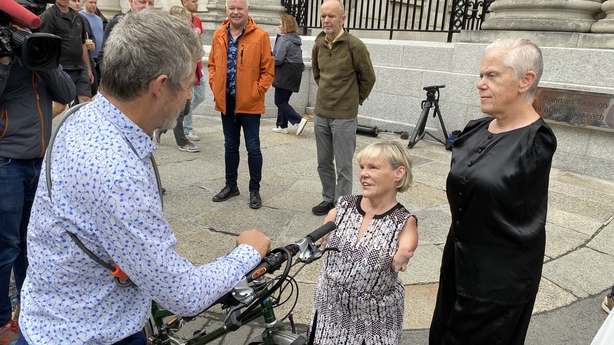Survivors of Thalidomide have met with the three Government leaders at Government Buildings.
The Irish Thalidomide Association described the meeting as historic and hopefully the beginning of the end of the difficulties.
ITA spokesperson Finola Cassidy said they will now engage in a process with the Government to deal with the issues.
She said the 90-minute meeting was a historic occasion and that the three leaders engaged very well.
Ms Cassidy said it was the largest gathering of thalidomide survivors in one room for a very long time.
A Government spokesperson said the three party leaders had a good and constructive engagement with the survivors and that it was important for the leaders to engage with the survivors directly and to listen to them.
The Government and survivors have agreed on a pathway forward, the spokesperson added.
The association had rejected much of that correspondence from the Government, which it said did not amount to an apology but was more akin to "tea and sympathy".
The organisation wants a State apology, statutory supports and a fair compensation system, among its demands.
There are around 40 Thalidomide survivors in Ireland and the ITA says that all of them must be fully recognised.
All of the Thalidomide survivors are in their 60s.
There are also around five mothers of Thalidomide survivors alive, some of whom are in their 90s.

At the meeting, individual survivors told the Government leaders about their feelings, experiences and needs in their 60-year battle.
Going into the meeting Ms Cassidy said there are lots of aspects to their campaign that the Government might not be getting the message about.
She said she hoped there would be a definitive outcome soon.
Ms Cassidy said the meeting had been a long time coming and that most of the ITA were attending or would phone in.
She said it was very important that everybody got a fair hearing and that it was a unique opportunity to be heard by the Government.
She said she expected it to be an emotional day.
The drug Thalidomide first became available in the late 1950s for sleeping problems and morning sickness, but later became linked to birth defects.
It was eventually withdrawn, but the ITA says there was a delay in Ireland in doing this







